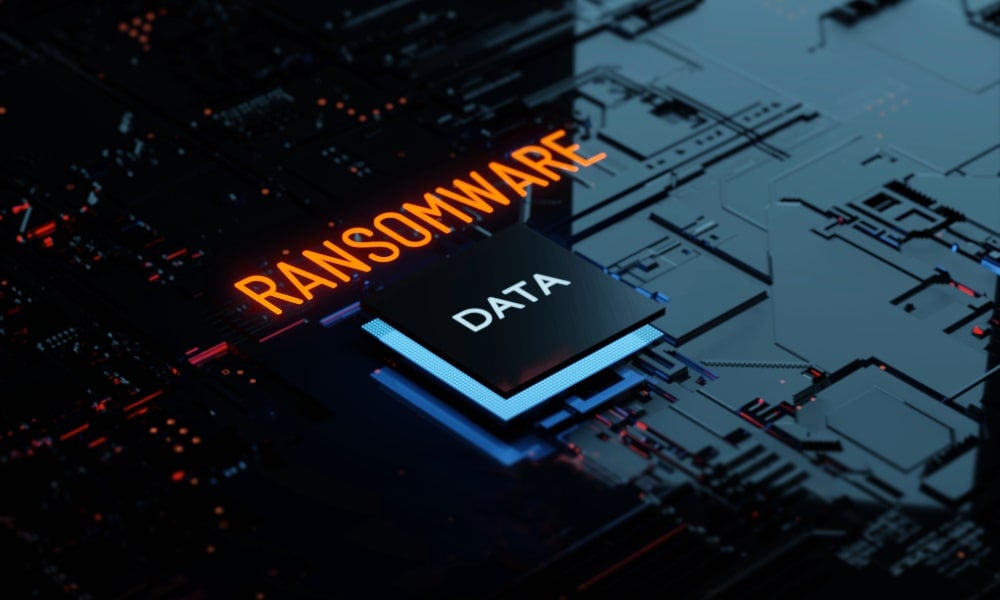Microsoft’s Kevin Peesker on ethical AI and bridging the tech skills gap
Businesses need to think critically about ethical AI and reskilling workforces for the AI era in order to drive successful outcomes, says Microsoft’s Kevin Peesker
One of the biggest challenges in artificial intelligence (AI) is not the capability of the technology itself, but the mindset and capability of businesses that use AI as well as the government decision-makers who regulate it, according to Kevin Peesker, President Worldwide Small Medium and Corporate (SMC) & Digital at Microsoft.
AI as a technology is profound because of the impact it can have across every industry and nearly all functions in an organisation, said Mr Peesker. However, he explained that using AI this will require a differentiated approach to leadership in strategy, organisation and people change management as individuals adopt new skills.
“In my 34 years in the technology industry, it has proven that those organisations who leaned in and deployed technology to deliver outcomes have been more successful than their peers,” said Mr Peesker. “CEOs around the world realised the foundational role technology can play in their organisations, and I saw an elevation in their learning, their interactions with the Board and the way they structured their organisations.”

Ethical AI and skills development
In the process of adopting AI, he said it is essential to ensure that the technology is used responsibly and ethically as it becomes even more prevalent in the coming months and years. ”One reason I appreciate being at the forefront of cutting-edge technology at a large corporation such as Microsoft is the emphasis and proactive advocacy we are taking around responsible AI practices by working diligently with governments and policymakers,” said Mr Peesker, who holds an Executive MBA from AGSM @ UNSW Business School and has worked in a range of leadership roles at global technology companies including Dell and IBM.
Another real and significant challenge will be a shortage of skilled workers in the AI field and the evolution of workforces through deliberate skilling at scale. “As the demand for AI professionals continues to grow, there will be a shortage of qualified candidates to fill these roles. We see it today in cybersecurity, millions of open roles globally, and in my mind, security and AI go hand-in-hand,” he said.
“As more data is generated and stored, it is important to ensure that this data is secure and protected. That said, it is important to call out that this wave of Generative AI is about all team members in an organisation, and not simply the purview of the few who are building algorithms,” said Mr Peesker.
As such, learning and adoption initiatives for AI must be made available to all employees in an organisation. “It would be short-sighted to stop there: the opportunities and potential of AI to transform societies, up-level education and healthcare far outweigh some of the challenges and growing pains that come with innovations such as these. I am excited and more passionate about technology than ever, and believe me, once you start applying Generative AI (Microsoft Copilot in my current vernacular), you won’t want to go back,” he said.
Read more: How ethical leadership creates responsible AI
How the field of cybersecurity risks is evolving
Mr Peesker, who is responsible for leading a global team in the delivery of cloud, data and AI, security and other solutions for SMC customers worldwide, also observed that the field of cybersecurity threats and risks is constantly evolving.
In the short to mid-term future, he said organisations can expect to see an increase in the number and sophistication of cyber-attacks and bad-faith actors. As such, it is essential for organisations to “stay ahead of the curve” as they increasingly rely upon digital for every process. “One of the biggest internal threats to organisations is apathy or the belief that cybersecurity is something ‘other’ organisations need to worry about and that no one will care about my organisation,” he said.
“One of the biggest external threats facing organisations is ransomware, and no one is immune. Ransomware attacks have become pervasive in recent years, and they can be devastating for businesses – especially small businesses with limited IT resources.”
“It is important for organisations to have a comprehensive cybersecurity strategy in place to protect against these threats. Every discussion I have with a customer includes security, and as the largest cybersecurity company in the industry, building security into our platforms at Microsoft is a critical priority.”

Global career development reflections
As a member of Microsoft’s global customer and partner solutions leadership team responsible for US$160 billion in revenue, Mr Peesker has direct worldwide responsibility for US$60 billion in revenue in the corporate customer segment (36,000 customers) and small to medium-sized business (SMB) segment (millions of customers).
“I engage with CEOs through to founders around the world on the fusion of technology with business. Over a 34-year career in technology, I have led thousands of people across a career that has included living on five continents and travelling to more than 75 countries,” said Mr Peesker, who reflected on the drivers of his career success.
“Various leaders throughout my career have been incredibly impactful,” he said. “While living and working in Australia in my late 20s, my manager at the time asked, ‘What is your career aspiration?’ I shared my ambition to lead a company one day. We discussed the steps that would be required and agreed an MBA would be invaluable for accelerating my learning and skills.”
This manager affirmed that to lead a business, Mr Peesker needed to deeply understand sales and how to drive revenue. “Three days later, as luck would have it, I signed up, and two weeks later, I was moved from a role managing people in strategy and operations to an individual contributor role in acquisition sales – and I stayed in frontline sales for three years,” he said.
“Upon reflection, I was fortunate to have proximity to a world-renowned program. The AGSM EMBA enabled me to gain an accelerated understanding of business and leadership and apply it immediately in my work. The quality and learning from my professors and brilliant class colleagues, representing various industries and experiences, was inspiring.”
Read more: What technology skills are needed to future-proof business?
However, the learning journey was not easy, and Mr Peesker recalled how classmates would join him in sharing the challenges of juggling the priorities and responsibilities of work with study, which was a stretch for many. However, he said the effort was rewarded by cultivating a strategic mindset, and Mr Peesker and his fellow students learned how to make better-informed decisions for their respective businesses and, by extension, their internal teams, customers and partners.
“I was taught how to become a better thinker, a stronger collaborator, and to have confidence that I can take on new challenges, and this has been foundational to career growth and the high-level impact I have been able to deliver since the program,” Mr Peesker said.
Career highlights in technology innovation
Following graduation from AGSM in 1996, Mr Peesker said he had the privilege of being at the core of the technology industry and a 30-plus year innovation story. This started with PCs and then the internet, followed by mobile devices and the migration to the cloud – “and now, of course, the phenomenon, which I believe will have more impact than any of the other tech eras: artificial intelligence and generative AI,” he said.
Read more: How ethical leadership creates responsible AI
Mr Peesker singled out career highlights, including leading product marketing for Asia, which saw him leading his first sales team and building upon this to lead revenue generation for a country. This then expanded to a similar role for a group of countries, followed by Europe and now the globe. “I achieved an ambition to take on the heightened complexity and responsibility of leading a company as the President of Dell Canada.
“And then, six-and-a-half years ago, I joined a ‘little company’ called Microsoft as the first Canadian in 14 years to be the President of Microsoft Canada,” said Mr Peesker. Working for Microsoft has provided him with an “incredible platform” for impact, which he said has been the “ultimate highlight” of 34 years in the technology industry.
“Together with my amazing team, we built a lasting legacy from working together across industry, government and education to advocate for and prioritise skilling in technology, which is seminal in today’s AI economies. To be selected as a leader among my peers and serve on boards to promote the growth of the Canadian tech industry has been an honour,” he said.
“If I were to time travel back to that meeting with my manager in my 20s when I declared my ambition, received support and took action to attend AGSM, I did not imagine a journey so varied with experience and learning and has resulted in my current role for Microsoft as leader of a global team responsible for over A$90 billion who serves and empowers millions of organisations in more than 180 countries.”

Overcoming career challenges
In discussing his career highlights, Mr Peesker also reflected on how he overcame the most significant challenges of his career. “It is wonderful how, as part of the human condition, we are programmed to forget the pain and hardship and remember the satisfaction and joy,” he explained.
“There is the saying that ‘happiness is good for the body, but it is grief which develops the powers of the mind’. Those moments of most significant challenge are where the deepest learning and fastest personal development as a leader has occurred.”
To illustrate, Mr Peesker said he has managed through challenging economic cycles exemplified by the Asia currency crisis in the 1990s, the dot com crash in the early 2000s, the global financial crisis, COVID, as well as the current high inflation and energy challenges faced by many organisations and economies. “AGSM taught me to be data-driven, to look for patterns, and to apply frameworks, and I have continued to leverage that foundation. Managing tremendous complexity requires the ability to rise above the crisis to assess, determine alternatives and take action,” he said.
Microsoft’s leadership principles are to create clarity, generate energy, and deliver success, according to Mr Peesker, who explained that “pressing pause and zooming out” has been a great practice that has assisted him in managing highly complex scenarios.

A second ongoing significant challenge he faces is keeping up with the pace of technology change. While the industry has always been frenetic, he said this is “currently turbocharged” with innovation, potential and the impact of AI. “To overcome this challenge, I have developed a deliberate always-on-learning mindset,” he said.
“I have personally made a conscious effort to stay up-to-date with the latest innovations and technologies and dedicate time – a precious commodity, to continuous learning. Luckily, I work with a team of experts who are among the best and brightest on our planet, who help me navigate the rapidly changing landscape so I can help others.”
Advice for graduates and aspiring leaders
In a highly competitive and fast-evolving industry such as technology, Mr Peesker offered some advice for graduates and aspiring leaders looking to get ahead in their professional careers.
“Never lose the curiosity for learning which led you to gain a world-class degree,” he affirmed. “Be passionate about what you do as you embark on your career or expand your current role. Passion is the key to success, and it is important to find something you genuinely enjoy doing and commit fully through continuous learning, introspection, mentorship, and accountability. In my experience, that passion will develop, shift, grow in new, sometimes orthogonal ways, and as part of the journey, that is healthy.”
It is also okay to take risks and forge your path to professional fulfilment, said Mr Peesker, who reflected on his experience of different roles in which he went from leading large organisations to managing small teams in different disciplines. “At the end of the day, the ladder of success isn’t necessarily always a vertical one,” he said.
Subscribe to BusinessThink for the latest research, analysis and insights from UNSW Business School
“Over time, every role, every stretch project, and each career shift provides experiences that, when stitched together, create the foundation for assuming bigger, more complex assignments and responsibilities. For me, it is having the opportunity to positively impact people and economic success at a great scale.”
The final parting advice from Mr Peesker to graduates and aspiring leaders is to understand and appreciate the value of relationships in business. While he acknowledged that he “loves data”, he said the degree to which every business and organisation thrives depends on its people. “Building strong relationships with others is critical and makes the challenging times worthwhile,” he said.
People are at the core of Microsoft’s values (respect, integrity and accountability), said Mr Peesker, who underscored the importance of stakeholder management as a critical element of any career. “It is important to build relationships with people who can help you be better and achieve your goals,” he said.
Relationships are a two-way phenomenon, and Mr Peesker recalled an African proverb to illustrate: “Want to go fast, go alone; want to go far, go together,” he said. “It is so true. Career success is likely to be achieved when helping others (whether they be colleagues, partner companies or customers) achieve their goals is consistently executed as a top ‘personal’ priority.”
